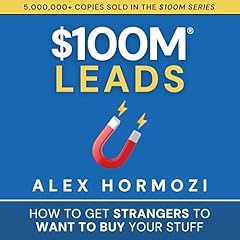
Trade-Off
Why Some Things Catch On, and Others Don't
No se pudo agregar al carrito
Add to Cart failed.
Error al Agregar a Lista de Deseos.
Error al eliminar de la lista de deseos.
Error al añadir a tu biblioteca
Error al seguir el podcast
Error al dejar de seguir el podcast
 Exclusivo para miembros Prime: ¿Nuevo en Audible? Obtén 2 audiolibros gratis con tu prueba.
Exclusivo para miembros Prime: ¿Nuevo en Audible? Obtén 2 audiolibros gratis con tu prueba.Compra ahora por $17.58
-
Narrado por:
-
Dennis Holland
-
De:
-
Kevin Maney
Why did the RAZR ultimately ruin Motorola? Why does Wal-Mart dominate rural and suburban areas but falter in large cities? Why did Starbucks stumble just when it seemed unstoppable? The answer lies in the ever-present tension between fidelity (the quality of a consumers experience) and convenience (the ease of getting and paying for a product).
In Trade-Off, Kevin Maney shows how these conflicting forces determine the success, or failure, of new products and services in the marketplace. He shows that almost every decision we make as consumers involves a trade-off between fidelity and convenience between the products we love and the products we need.
Rock stars sell out concerts because the experience is high in fidelity - it cant be replicated in any other way, and because of that, we are willing to suffer inconvenience for the experience. In contrast, a downloaded MP3 of a song is low in fidelity, but consumers buy music online because its super convenient.
Products that are at one extreme or the other - those that are high in fidelity or high in convenience - tend to be successful. The things that fall into the middle-products or services that have moderate fidelity and convenience fail to win an enthusiastic audience.
Using examples from Amazon and Disney to People Express and the invention of the ATM, Maney demonstrates that the most successful companies skew their offerings to either one extreme or the other - fidelity or convenience -i n shaping products and building brands.
©2009 Kevin Maney (P)2009 Audible, Inc.Los oyentes también disfrutaron:




















Reseñas de la Crítica
useful, but oversimplified
Se ha producido un error. Vuelve a intentarlo dentro de unos minutos.
Maney argues that companies need to choose to specialize in fidelity or convenience, or they will fall into the "fidelity belly" where their products and services are neither loved or required. Expensive products or services (high fidelity) need to be ten times as good as convenient (cheap or free) services to survive. Newspapers gutted themselves by laying off reporters and closing branches, therefore diminishing their fidelity. We all need to make hard choices and trade-offs, and figure out where the product/service we deliver meets the demands for fidelity or convenience.
No Trade-Offs for Reading Trade-Off
Se ha producido un error. Vuelve a intentarlo dentro de unos minutos.
great listen
Se ha producido un error. Vuelve a intentarlo dentro de unos minutos.
Interesting concept...
Se ha producido un error. Vuelve a intentarlo dentro de unos minutos.
Really really wanted to like it
Se ha producido un error. Vuelve a intentarlo dentro de unos minutos.


